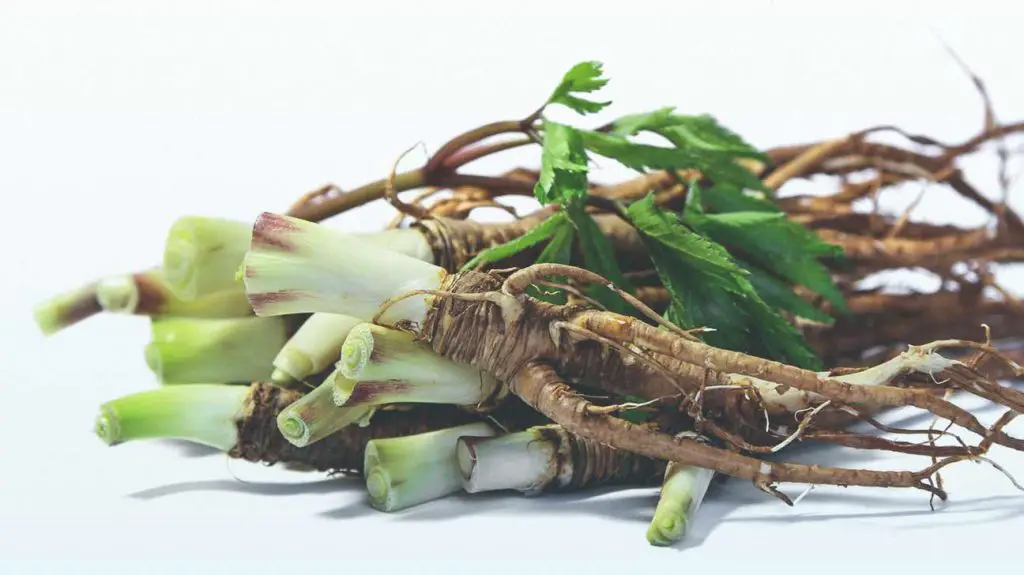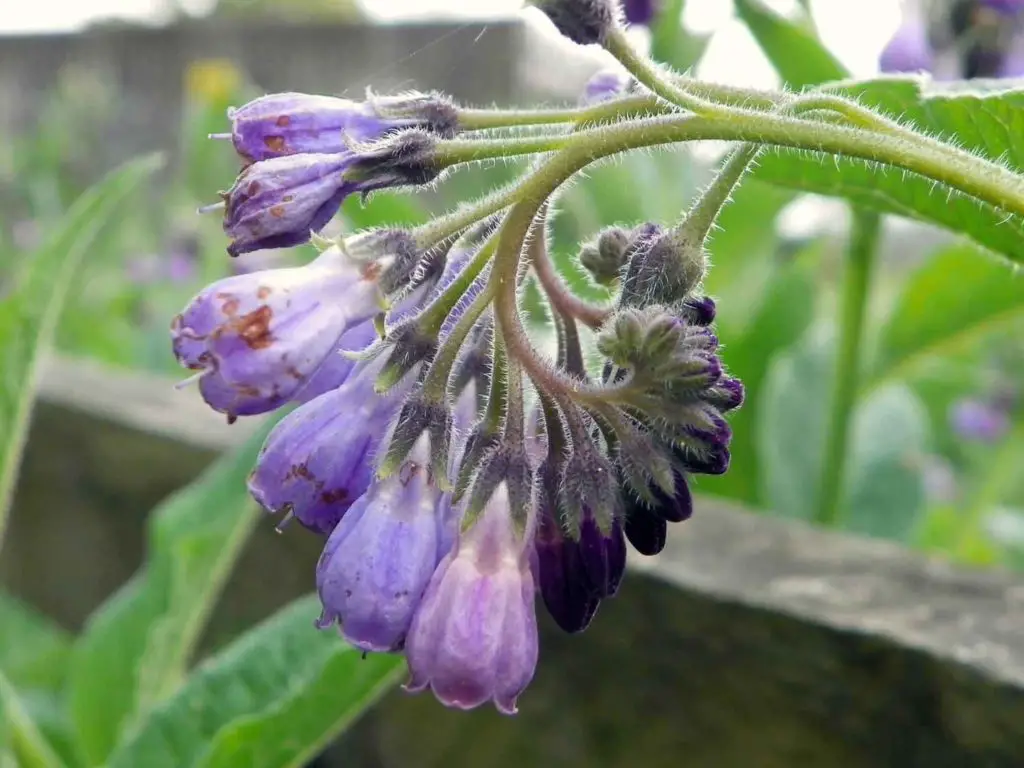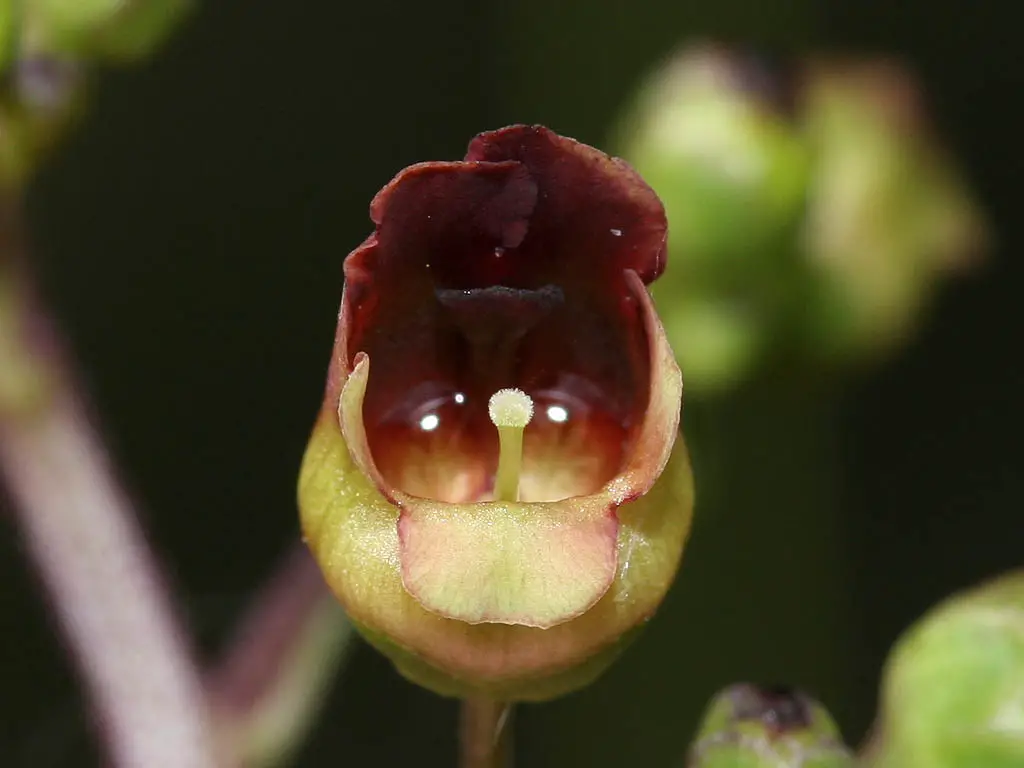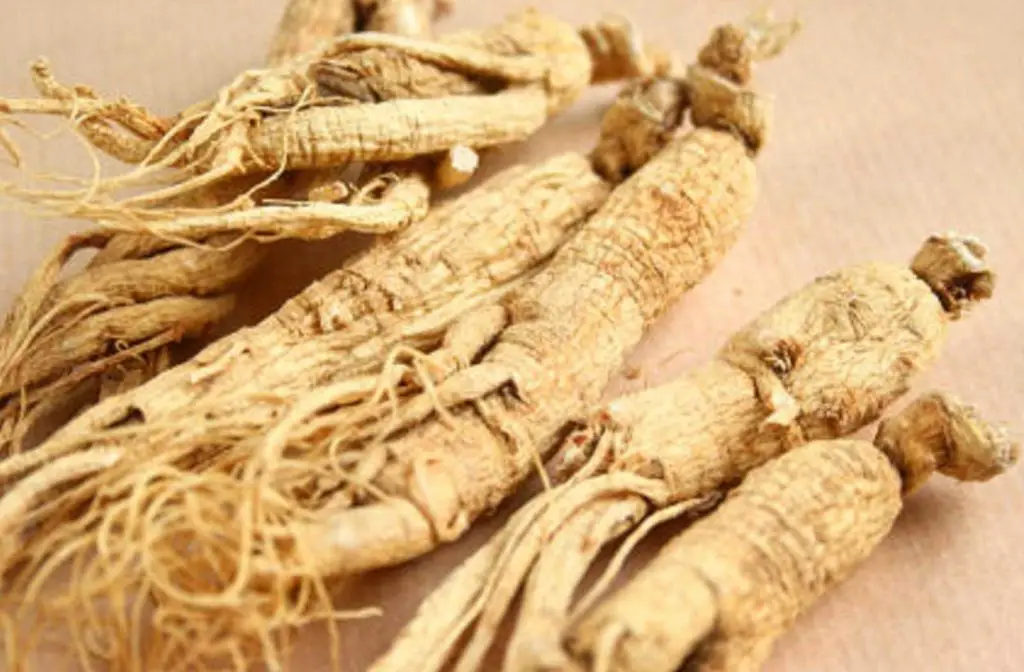What is Dang Gui?
Dang Gui (当归), also known as Chinese Angelica Root, Female Ginseng, Dong Quai and its scientific name Radix Angelica sinensis, is an herb that is indigenous to the high altitude and mountainous regions of China, Japan, and Korea. Oftentimes it is associated with blood nourishment and women’s reproductive health, although other conditions may also benefit from Dang Gui. Over 70 compounds have been recognized in the roots of Dang Gui that have purported medicinal qualities.

This yellow-ish brown root has been used from many thousands of years to treat a variety of ailments, ranging from mild acne to cardiovascular issues to female reproductive health. Although the root is the only portion of the plant typically used for medicinal purposes, it is harvested from a green bushy plant that often has small bundles of white flowers and purple stems. The root is said to have a very pungent taste that ranges from sweet to bitter, and some people suggests that it has a similar taste to celery, which is a close botanical relative of Dang Gui.
If you’re looking for other TCM herbs, you can also check out Eucommia Bark.
Dang Gui Benefits and Uses
Abortion / Miscarriage
Traditionally Dang Gui has been used to induce an abortion for an unwanted pregnancy or to treat a recent miscarriage. Although some people still try to use Dang Gui for this purpose, many suggest that it is unsafe. Many people with first hand experience using Dang Gui as a low-cost treatment to induce an abortion report having chest pains, infections, and other negative side effects without actually inducing an abortion. Those testimonies suggest that when using Dang Gui as a natural abortion supplement, more harm can be caused to the woman. Although its traditional use for abortions and miscarriages suggests that Dang Gui can work for this purpose in some instances, people who have recently used Dang Gui regret using it and suggest visiting a clinic with a certified physician to perform an abortion or to receive treatment for a miscarriage.
For Men’s Health
Although Dang Gui is typically used for women’s health, testimonial evidence suggests that Dang Gui can also have beneficial impacts for men’s health as well. Although scientific research has not explored this area much yet, some men note having improved fertility and improved prostate health. There is also minimal evidence that a Dang Gui cream may treat premature ejaculation when applied to the outer surface of the penis.

Menopause
Traditionally, Dang Gui was often used to treat menopausal women, because the symptoms of menopause can not only be inconvenient but can be a hinderance on everyday life. As such, it should come as no surprise that some researchers have studied the effects of Dang Qui on menopausal women to see if the benefits were actually true. A study was performed in 2012 that tested the effects of Dang Gui on the symptoms on menopause, and it showed that women who ingested at least 3.0 g of Dang Gui per day had fewer physiological and physical symptoms of menopause. The treatment was well tolerated and there were no adverse effects or changes in hormonal or lipid profiles during the 12-week study. However, there is more research that needs to be performed on the effects of Dang Gui on menopause, because some of the studies either have mixed results or are inconclusive, as outlined below in the hot flashes section. Conversely, some studies on Dang Gui and menopause have had definitive positive results with specific symptoms, as discussed in the hormone balance section.
Hot Flashes
In 2008 a double-blind study was performed on 100 women in Hong Kong to test the effects of Dang Gui on menopausal symptoms. Their results showed that women who took the Dang Gui treatment reported hot flashes more often than the placebo group, but those hot flashes were less severe than those women who were placed in the placebo group. For many other symptoms of menopause (e.g., night sweats) there was no difference between the treatment group who received the Dang Qui or the placebo group who received an inert substance. The researchers suggest that based on their results, Dang Qui may be useful for treating mild hot flashes, but more severe hot flashes may not improve significantly after using Dang Gui.
Hormonal Balance
The use of Dang Gui for menopause does more than reduce symptoms. It may actually help with hormone balances. While this was mentioned briefly above, other studies made hormones the main subject of research. In 2006, the extracts of Dang Qui showed to produce steroid hormones, like estrogen that were less harmful than traditional hormone therapies. As such, the researchers suggested that Dang Qui can potentially act as a novel hormone replacement therapy for menopausal and post-menopausal women. Additionally, hormone balancing caused by Dang Gui can also benefit pre-menopausal women with conditions like PMS and endometriosis.
Fertility
Traditionally, Dang Gui has been used to treat infertility, and that tradition still carries on today. In fact, a supplement containing Dang Gui (and sometimes other medicinal herbs) is still often prescribed by holistic practitioners to treat female infertility. Two studies (both published in 2002 by the same author) suggests that Dang Gui can improve fertility by correcting problems with ovulation, specially the luteal phase of the menstrual cycle. During this phase, the lining of the uterus normally thickens to prepare for a potential pregnancy, however if it does not thicken then there can be problems conceiving. Dang Gui is thought to regulate this thickening and support a healthy conception.
Period
Dang Gui has been used for centuries to promote women’s health and wellness, and recent studies also support the potential use of the root for painful periods. In 2006, a study was conducted on rats where the rats’ uteri were treated with a mixture of Dang Qui and a 50% alcohol solution. Upon analysis, the researchers discovered that the Dang Gui/alcohol mixture reduced uteri contractions. From these results, the researchers inferred that Dang Gui may have a positive effect on painful periods.
PCOS
As mentioned above, Dang Gui already has a reputation for treating painful periods and infertility. So, it would make sense that the root could also provide relief to women suffering from PCOS, a condition that is characterized by both unpleasant periods and infertility, among other unwanted symptoms. In studies published in 2003 and 2004, authors alluded that Dang Gui may provide relief and improve the symptoms of PCOS by tonifying the blood. While more research needs to be done in this area, one could hypothesize that Dang Gui could help women suffering from PCOS since it is already known to be useful to treat other conditions associated with menstruation.
PMS
As we have read so far, Dang Gui can help with a number of female-related conditions, ranging from menopause to PCOS and from abortion to infertility. With the regulating effect that Dang Gui has on the menstrual cycle, it may also have effects on PMS. In 2006, a study conducted was at the University of Illinois at Chicago where researchers isolated compounds from Dang Gui that showed to promote serotonin activity, which may play a role in treating the symptoms of PMS. While more research still needs to be performed in this area, many women claim from first-hand experience that Dang Gui promotes a healthy monthly cycle and eases the symptoms of PMS.

Thyroid
Although research on the effects of Dang Gui on thyroid issues is still preliminary, a study was performed with another traditional medicine with similar compounds as Dang Gui. This case study involved a 33-year-old woman who was diagnosed with hyperthyroidism, specifically Grave’s Disease. After three years of treatment, her symptoms disappeared, and her thyroid function returned to normal. Aside from this case study, ancient Chinese writings often include formulas for Dang Gui treatments aimed at helping those with overactive thyroid glands.
Endometriosis
Amongst all the traditional treatments given to women suffering from endometriosis, Dang Gui is one of the most popular and most commonly prescribed. In 2014, a population-based study based in Taiwan revealed that Dang Gui is often prescribed to treat dysmenorrhea, or very painful periods (like those associated with endometriosis). Due to its popularity and epidemiological use, those researchers suggested that a double-blind clinical trial should be conducted. While this has yet to happen, smaller studies have taken place with some success. Even though more research is needed, some women say that Dang Gui helped relieve the intensity of their periods and helped them to avoid surgical treatment for endometriosis.
Weight Loss
Although research is only preliminary, Dang Gui is popularly used to promote weight loss. This may have something to do with Dang Gui’s reported benefits on patients with diabetes (e.g. regulating blood sugar). One study published in 2009 showed that Dang Gui reduced body fat in obese rats, and another study published in 2011 also showed similar results after the rats were given a daily Dang Gui extract. The study published in 2009 suggested that the reduction in body fat may caused by the protein APOA4 which regulates the apatite and leaves the body feeling satisfied.
Acne
A few studies have published minor findings on the effects of Dang Gui mixtures on acne, but most of its success as an acne treatment is best exemplified by the testimony of the many people who have tried it. It is suggested that the female hormones, like estrogen, that are promoted by Dang Gui can prevent acne on both the face and back. However, excessive use of Dang Gui for acne is known to make the skin photosensitive, and thus is should only be used in moderation.
Fibroids
Many people suggest that Dang Gui may help to relieve uterine fibroids, which makes sense considering that the supplement relieves so many other female afflictions. Research in this area is predominantly historical instead of experimental. Many women use Dang Gui to relieve uterine fibroids, but herbal specialists suggest going to a medical practitioner before taking Dang Gui on your own. Dang Gui may not be useful for everyone, and the woman’s specific reproductive health history should be taken into account first. However, it may be helpful for some women because Dang Gui has anecdotally been known to be a natural analgesic and antispasmodic.
Blood/Cardiovascular Effects
In 2002 a study was performed to determine if a Dang Gui mixture would improve hemopoietic function (blood cell production). In this study, mice that were given the treatment had improved numbers of red blood cells, while blood cells, and bone marrow nucleated cells (i.e., the cells in the bone marrow that produce blood cells). On their own, these results may not seem exciting, put they support the potential use for blood afflictions and cardiovascular issues. A later study performed in 2006 also showed that Dang Gui may have a cardioprotective effect and may help those with myocardial injuries. Although this study was also only performed on rats, the researchers implored for human studies due to those positive results.
Hair Growth
There is evidence to suggest that Dang Gui does induce hair regrowth, not only in vitro but in multiple studies involving mice. Over a period of two weeks mice were given a dosage of Dang Gui against a placebo group and showed a notable hair regrowth. The hair shafts and follicles were restored. The study concluded that Dang Gui should be considered an alternative treatment for hair regrowth, however; studies on humans are needed.
Dang Gui Dosage
Dosage for Fertility: If trying to promote fertility, it is suggested to take Dang Gui as an extract. The recommended dosage for this case is 60 drops per day taken with water. This dosage can be split into two doses of 30 drops taken twice per day. This might differ from each manufacturer.
Dosage for Hormonal Balance: To balance the hormones, many suggest making a tea from Dang Gui. The recommended formula is 10 g of Dang Gui mixed with 3 g of black tea.
Tablets are also available and are often modified for treating various ailments. If taking tablets, be sure to follow the instructions provided on the bottle or discuss dosage with your doctor.
Dang Gui Side Effects, Safety, Dangers and Warnings
Dang Gui does contain substances that are known to cause cancer, so it is not recommended if you previously had breast, ovarian, or uterus cancer or if you have a family history of those cancers. If you have a protein S deficiency, do not take Dang Gui because it may increase the risk of blood clots.
If you have endometriosis, uterine fibroids, or a blood clotting disorder, please contact your doctor before using Dang Gui. Stop using Dang Gui if you experience excessive bruising or bleeding.
If you are taking blood clotting medications (e.g. Warfarin), do not take Dang Gui.
If you need dental work or surgery, do not take Dang Gui at least two weeks before the scheduled procedure in order to avoid excessive bleeding.
Although Dang Gui is used to promote fertility, once you are pregnant do not take Dang Gui as it can cause bleeding, possible miscarriage, or birth defects. Additionally, do not take if you are breast feeding because it is currently unknown if the compounds in Dang Gui can pass through the breast milk. Along those lines, the effects of Dang Gui in infants and children is unknown, and thus it should not be prescribed or given children without first consulting a doctor.
Some people are known to be allergic to Dang Gui, in which case you should avoid taking it. Potential allergic reactions include hives, swelling of the face, mouth, and tongue, and difficulty breathing.
If applying to the skin, stop using if you experience burning or skin sensitivity. Avoid tanning beds and wear sunscreen (at least SPF 30) if using Dang Gui topically.
References:
https://www.ncbi.nlm.nih.gov/pmc/articles/PMC3174116/
https://www.ncbi.nlm.nih.gov/pmc/articles/PMC2811999/
https://www.ncbi.nlm.nih.gov/pubmed/16278617
https://www.ncbi.nlm.nih.gov/pmc/articles/PMC4210922/
https://www.ncbi.nlm.nih.gov/pubmed/16691630
https://www.ncbi.nlm.nih.gov/pubmed/24365638
https://www.ncbi.nlm.nih.gov/pubmed/25004889
https://www.ncbi.nlm.nih.gov/m/pubmed/21867503/
https://www.ncbi.nlm.nih.gov/pubmed/14664413




